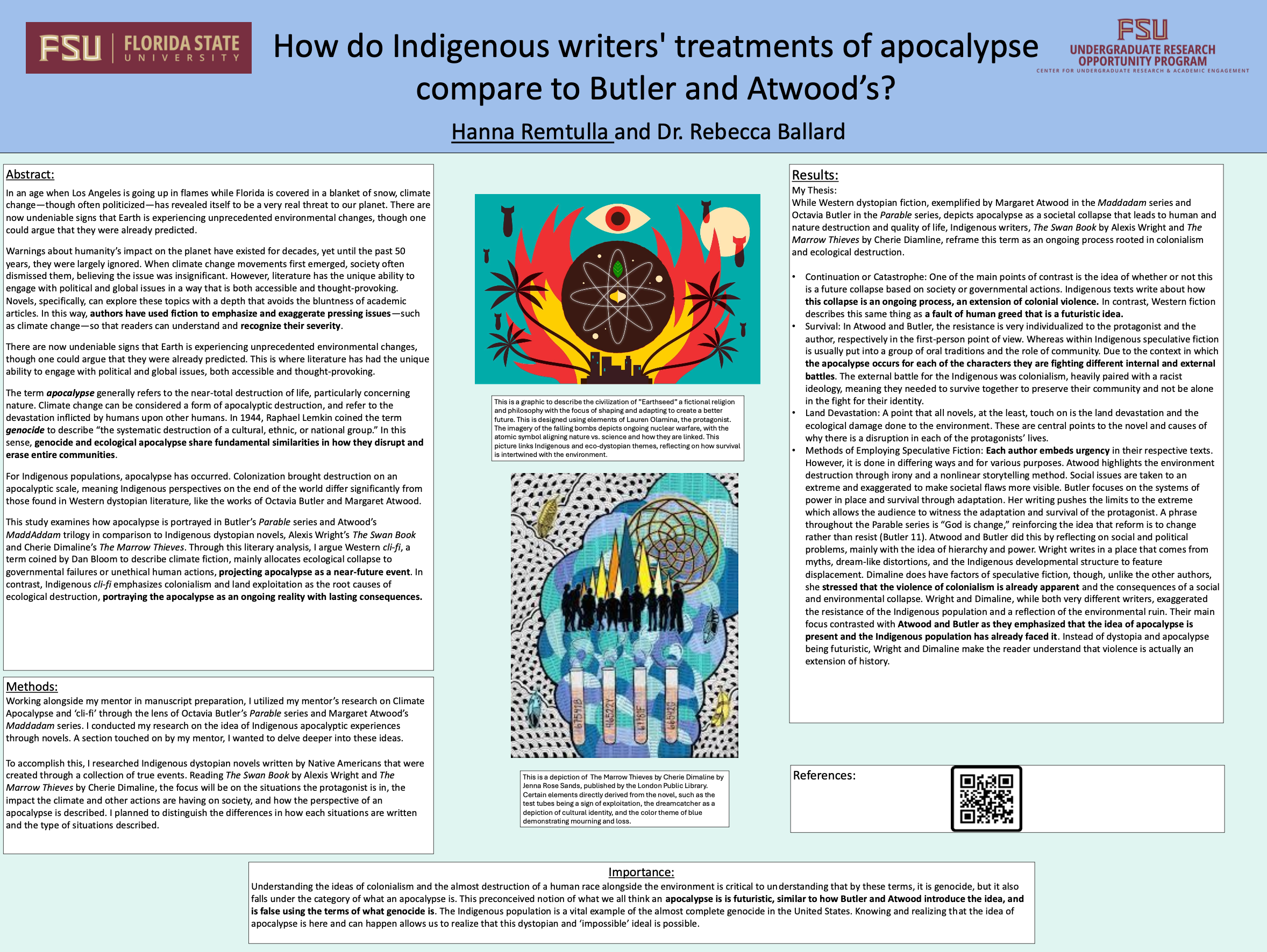Research Symposium
25th annual Undergraduate Research Symposium, April 1, 2025
Hanna Remtulla Poster Session 2: 10:45 am - 11:45 am/ Poster #123

BIO
Hi! My name is Hanna Remtulla, and I am a first-year Honors Program student here at Florida State University. I am pursuing a double major with a Bachelor of Arts in Political Science with a concentration in International Relations and a Bachelor of Science in Finance. Currently, I am on the pre-law track with hopes of attending law school and working within the legal field.
At FSU, my campus involvements include completing the Freshman Leadership Institute program by the student government, being a writer for the FSU chapter of an international magazine named Her Campus, being a member of the Women in Government, being a member of Women's Student Union, and Women in Pre-Law.
How do Indigenous writers' treatments of apocalypse compare to Butler and Atwood’s?
Authors: Hanna Remtulla, Rebecca BallardStudent Major: Political Science, Finance
Mentor: Rebecca Ballard
Mentor's Department: English Mentor's College: College of Arts and Sciences Co-Presenters:
Abstract
The term apocalypse generally refers to the near-total destruction of life, particularly concerning nature. Climate change can be considered a form of apocalyptic destruction and refers to the devastation inflicted by humans upon other humans. In 1944, Raphael Lemkin coined the term genocide to describe “the systematic destruction of a cultural, ethnic, or national group.” In this sense, genocide and ecological apocalypse share fundamental similarities in how they disrupt and erase entire communities.
For Indigenous populations, apocalypse has occurred. Colonization brought destruction on an apocalyptic scale, meaning Indigenous perspectives on the end of the world differ significantly from those found in Western dystopian literature, like the works of Octavia Butler and Margaret Atwood.
This study examines how apocalypse is portrayed in Butler’s Parable series and Atwood’s MaddAddam trilogy in comparison to Indigenous dystopian novels, Alexis Wright’s The Swan Book and Cherie Dimaline’s The Marrow Thieves. Through this literary analysis, I argue Western cli-fi, a term coined by Dan Bloom to describe climate fiction, mainly allocates ecological collapse to governmental failures or unethical human actions, projecting apocalypse as a near-future event. In contrast, Indigenous cli-fi emphasizes colonialism and land exploitation as the root causes of ecological destruction, portraying the apocalypse as an ongoing reality with lasting consequences.
Keywords: Climate Change, Dystopia, Apocalypse, Genocide, Colonialism


